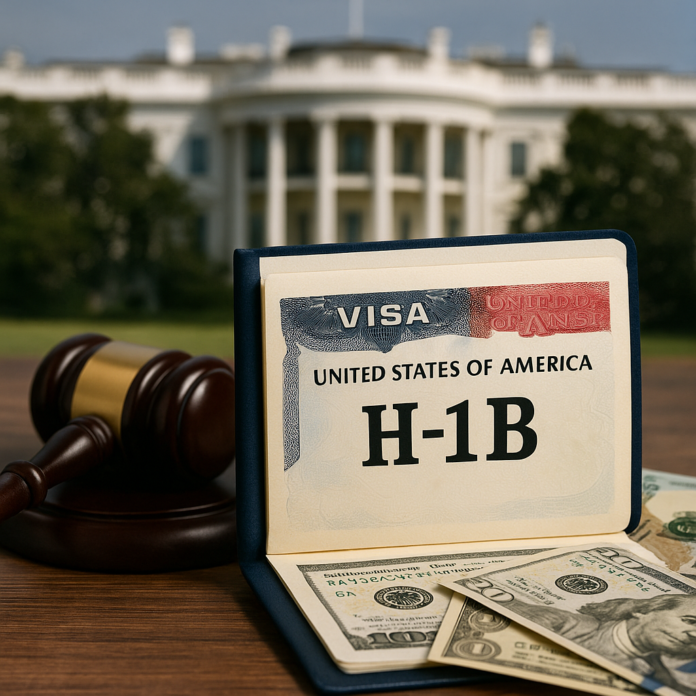
President Donald Trump has signed a proclamation that introduces a steep new fee for skilled worker visas and launches an investor-based immigration program aimed at wealthy individuals and corporations.
The measure places a one-time $100,000 fee on new H-1B visa applications, which are heavily used by U.S. technology firms to bring in foreign professionals for specialized roles. Existing visa holders and renewals are not covered by the fee, according to the White House. Press Secretary Karoline Leavitt clarified that current H-1B workers will continue to travel in and out of the United States without additional cost.
Commerce Secretary Howard Lutnick said the fee is meant to reduce reliance on overseas workers. “If a company wants to bring in talent from abroad, it will have to decide whether that person is worth the cost. Otherwise, employers should be training Americans,” he told reporters at the signing ceremony.
Alongside the visa change, Trump unveiled two new immigration options tied to wealth and investment. The “gold card” will allow individuals to apply for U.S. residency by paying $1 million, while companies can secure sponsorship rights for $2 million. A higher-tier “platinum card,” priced at $5 million, will provide up to nine months of U.S. residency each year without taxation on income earned abroad.
The White House said these programs are designed to attract capital and create new economic opportunities inside the United States. Critics, however, argue that the system will favor the rich while shutting out skilled but less wealthy applicants.
Reaction has been swift across industries. Amazon and JPMorgan both issued advisories to employees holding H-1B visas, warning them not to leave the country until the government provides clear instructions. Internal memos suggested that workers abroad should return immediately to avoid complications when the new rules take effect.
India, whose citizens make up the largest share of H-1B visa holders, voiced concern. Its Ministry of External Affairs said that exchanges of skilled talent have strengthened innovation and economic growth in both nations, and that the new U.S. policy will be carefully reviewed. Venture capital leaders also expressed alarm. Deedy Das of Menlo Ventures said the high fees could discourage global talent from seeking opportunities in the United States, undermining the country’s leadership in technology.
Business groups are already debating the legality of the policy. Aaron Reichlin-Melnick of the American Immigration Council noted that visa fees are generally meant to cover administrative costs, not to serve as broader economic policy. Court challenges are widely expected.
Supporters of the change say it will help curb abuses of the H-1B system and protect American workers from being displaced. Opponents warn that companies may move jobs overseas if they can no longer afford to bring skilled professionals to the U.S.
Trump also promoted the new investor visas as a replacement for earlier pathways used by professors, scientists, artists, and athletes. He argued that the new system would be simpler and more beneficial to the U.S. economy.
The policies are set to apply to new H-1B petitions filed in the February 2026 lottery cycle. Whether they survive legal scrutiny remains to be seen, but for now, both employers and employees are bracing for major disruption in one of the country’s most important visa programs.
This image is the property of The New Dispatch LLC and is not licenseable for external use without explicit written permission.